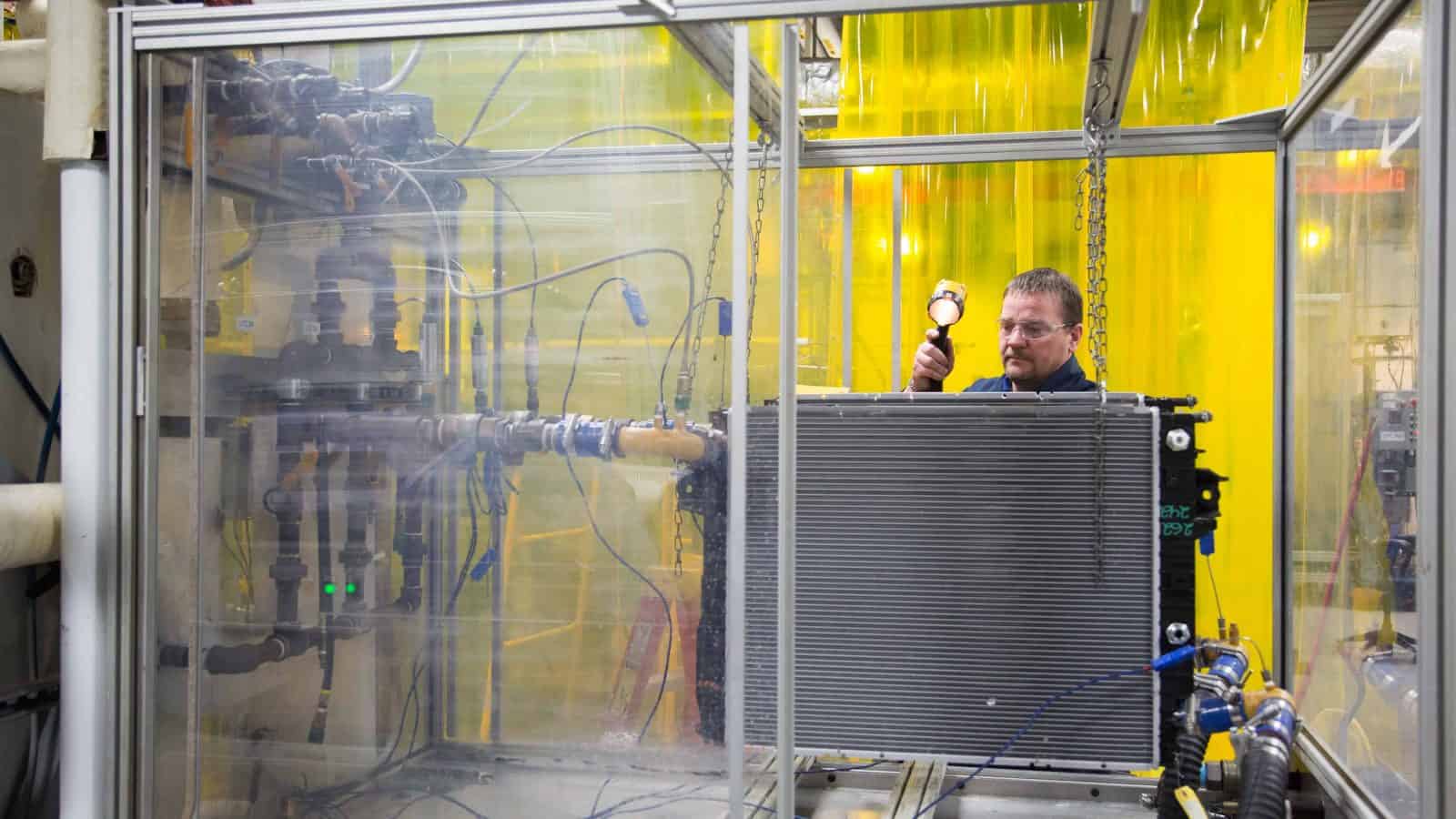Granholm: LNG Export Permit Freeze “a Study”

Energy Secretary Jennifer Granholm called the Biden administration’s recent moratorium on liquefied natural gas export permits “a pause for a study” at a Senate Energy and Natural Resources Committee hearing Tuesday, according to POLITICO Pro (subscription).
Committee Chairman Sen. Joe Manchin (D-WV) questioned several recent energy-related moves by the Biden administration.
What’s going on: “It is a pause for a study. You don’t need to hype it out beyond what it is,” Granholm told the committee on Tuesday. “It is a pause to get data.”
- The administration has received bipartisan criticism for the freeze of LNG export permits since announcing the move in January. NAM President and CEO Jay Timmons said the pause “undercut[s] President Biden’s own stated goals” and “weakens our country while giving Russia an upper hand.”
An examination of prices: Granholm told the committee the pause “was needed to examine prices and market demand since the last time a study was conducted.”
- She said the study will take into account foreign nations’ emissions “that may be linked to the absence of U.S. natural gas shipments.”
45V guidance: Sen. Manchin asked Granholm about proposed guidance on the Inflation Reduction Act’s first tax credit, known as the 45V. In a news release from the committee, Sen. Manchin said the proposed guidance, “if implemented … would jeopardize the viability of the industry before it even has a chance to get off the ground.”
- Sen. Manchin mentioned a recent letter to the administration from all seven “hydrogen hubs”—locations designated late last year by the administration to scale up the nation’s clean hydrogen production—saying the centers would “no longer be economically viable” without revision to the 45V proposed guidance.
- “Do you think we should heed the warning of [the Department of Energy]’s own seven hubs, and do you have any insight into what might be changed?” he asked.
- Granholm responded that the administration has “gotten over 30,000 responses, and they are working through those responses.”
- She added, according to POLITICO Pro, “The bottom line is clearly we want the hubs to succeed.”
Our take: “No matter what you call it, the administration’s pause on LNG export permits runs counter to the wishes of the American people and the interests of the United States and our allies,” said NAM Director of Energy and Resources Policy Michael Davin.
- “According to a recent NAM survey, 87% of Americans believe the U.S. should continue to export natural gas. The administration should listen.”
First-of-Its-Kind-in-U.S. Facility Breaks Ground

Construction of a manufacturing plant that promises to be vital to the world’s move toward electrification is now underway, according to Chemical Industry Digest.
What’s going on: “Orion S.A., a specialty chemicals company, broke ground on a plant in Texas that will be the only facility in the U.S. producing acetylene-based conductive additives for lithium-ion batteries and other applications vital for the global shift to electrification.”
- Batteries require conductive additives, and those produced at the Texas facility southeast of Houston will be made using acetylene, a colorless gas.
- Equistar Chemicals LP, a subsidiary of polymer and polyolefin technologies manufacturer LyondellBasell, will manufacture acetylene at a nearby location.
- The new plant will be similar to an Orion facility already in operation in southern France that also uses acetylene from LyondellBasell.
“A crucial part”: “[W]e see electrification as a crucial part of our plan to reduce carbon emissions across our industries,” said LyondellBasell Executive Vice President of Global Olefins and Polyolefins, Refining and Supply Chain Kim Foley. “By supporting the production of key battery components, we’re contributing to solutions for a better tomorrow.” The company recently released its annual sustainability report.
- The battery additives produced at the Texas facility will have “one-tenth of the carbon footprint of other commonly used materials,” according to the article.
- And the plant “will bring new technology and high-skilled jobs including laborers, millwrights, welders, equipment operators, among others jobs in Texas, and [will] positively impact long-term job creation for the local community,” Energy Job Shop reports.
Renewable-Energy Backlog Grew in 2023

The number of renewable energy projects awaiting entry onto the power grid rose significantly in 2023, according to POLITICO Pro (subscription).
What’s going on: There were “2,600 gigawatts of energy and storage capacity trying to connect [last year], according to a report released Wednesday by the Energy Department’s Lawrence Berkeley National Laboratory.”
- The waiting projects—most of which are wind, solar and storage capacity initiatives kickstarted with incentives from the Inflation Reduction Act of 2022—could more than double current grid capacity, the report says.
- Solar accounts for most of the generation.
The problem: Despite an order passed by the Federal Energy Regulatory Commission last year intended to speed up the process of getting new resources connected, “most regions have not yet implemented the new rule, leaving power systems across the country jammed.”
- The need to link in new energy sources quickly will only grow in the coming years, as the U.S. moves more toward electrification.
Our view: “Energy security is more important than ever,” NAM Director of Domestic Policy Michael Davin said. “Manufacturers need affordable, reliable energy to power economic growth. This is why we greatly need comprehensive permitting reform to expedite these projects and many more.”
DOE to Award Record-Setting Decarbonization Funds
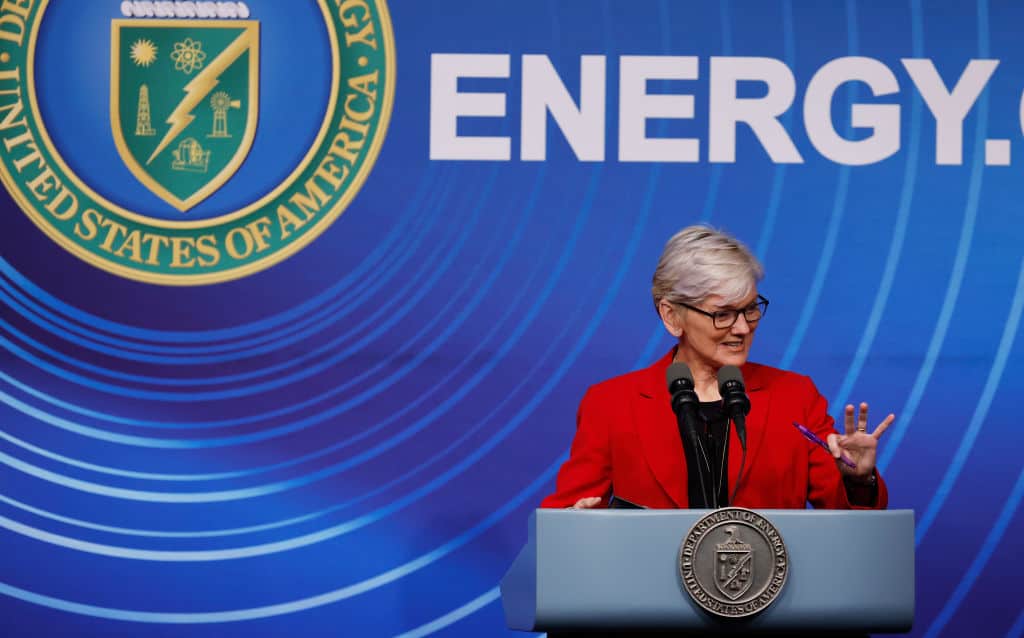
The Department of Energy on Monday announced record-setting funding aimed at decarbonizing energy-intensive sectors, POLITICO Pro (subscription) reports.
What’s going on: The nearly $6 billion in “funding from the Democrats’ climate law and the bipartisan infrastructure law for industrial decarbonization will be spread across 33 projects and 20 states,” where it “will apply to some of the highest-emitting industrial manufacturing sectors—often described as ‘hard-to-decarbonize’ industries—including iron and steel, aluminum, cement, concrete, chemicals, food and beverages, and pulp and paper.”
Where it’s coming from: The money will be drawn from funds set aside under the Inflation Reduction Act ($5.47 billion) and the Bipartisan Infrastructure Law ($489 million).
Why it’s important: The many projects to be funded—which include groundbreaking recycling initiatives, hydrogen-use projects, decarbonization of thermal processes and more—will remove approximately 14 million metric tons of emissions every year, the DOE estimates.
- Five of the highest-dollar-value projects, at half a billion dollars each, “are focused on decarbonizing cement, concrete, aluminum, iron and steel.”
- The work will take place in five states—Indiana, Ohio, California, Iowa and Mississippi—and a still-to-be-determined spot on the Mississippi River Basin.
- Many of the projects are spearheaded by NAM members, who have been critical in innovating decarbonization efforts from within the industry.
The NAM’s take: “Manufacturers are innovating and making tremendous investments to decarbonize their processes and products,” said NAM Vice President of Domestic Policy Brandon Farris. “It is great to see the Department of Energy recognize multiple NAM members for their industry-leading initiatives.”
NAM Poll Shows Americans Overwhelmingly Oppose LNG Export Pause; Support All-of-the-Above Energy Approach
Houston, Texas – The National Association of Manufacturers released the results of a new poll today showing bipartisan opposition to the Department of Energy’s freeze on export permits for new liquified natural gas projects. Respondents also strongly believe that the United States should pursue an all-of-the-above energy strategy, which includes supporting our global allies by providing cleaner, American-produced natural gas.
“The American public agrees: LNG exports are critical to U.S. energy security, creating well-paying jobs and supporting our allies in Europe and Asia. This poll underscores the need for President Biden to immediately direct the Department of Energy to roll back this misguided and counterproductive policy,” said NAM President and CEO Jay Timmons. “President Biden’s manufacturing legacy is at risk if the DOE and other federal agencies continue to act in direct contradiction to the stated goals of the president and the American people of bolstering manufacturing competitiveness in the U.S.”
The NAM analytics team conducted the poll March 15–18 and collected 1,000 responses from a nationwide sample of registered voters.
Key Findings:
- 87% of respondents agree the U.S. should continue to export natural gas.
- 76% of respondents agree with building more energy infrastructure, such as port terminals, here in the U.S.
- 74% of respondents agree with boosting production of domestic oil and natural gas in the U.S. instead of depending heavily on foreign energy sources.
- 72% of respondents prefer that American energy policy use an all-of-the-above strategy that includes oil and natural gas and renewable energy sources.
- 86% of respondents agree that we should change the permitting system so it doesn’t take so long for new energy infrastructure projects to be approved.
Background: On Jan. 26, the DOE announced a freeze on export permits for new LNG projects. Europe is the primary destination for U.S. LNG, accounting for 67% of total exports in the first six months of 2023. According to the DOE, Russian natural gas exports have 40% more global warming potential than U.S. LNG across 20 years. Russian gas also had 20% more global warming potential than European coal.
Read the full poll results here.
-NAM-
The National Association of Manufacturers is the largest manufacturing association in the United States, representing small and large manufacturers in every industrial sector and in all 50 states. Manufacturing employs nearly 13 million men and women, contributes $2.85 trillion to the U.S. economy annually and accounts for 53% of private-sector research and development. The NAM is the powerful voice of the manufacturing community and the leading advocate for a policy agenda that helps manufacturers compete in the global economy and create jobs across the United States. For more information about the NAM or to follow us on Twitter and Facebook, please visit www.nam.org.
Americans Oppose LNG Export Pause, NAM Poll Finds
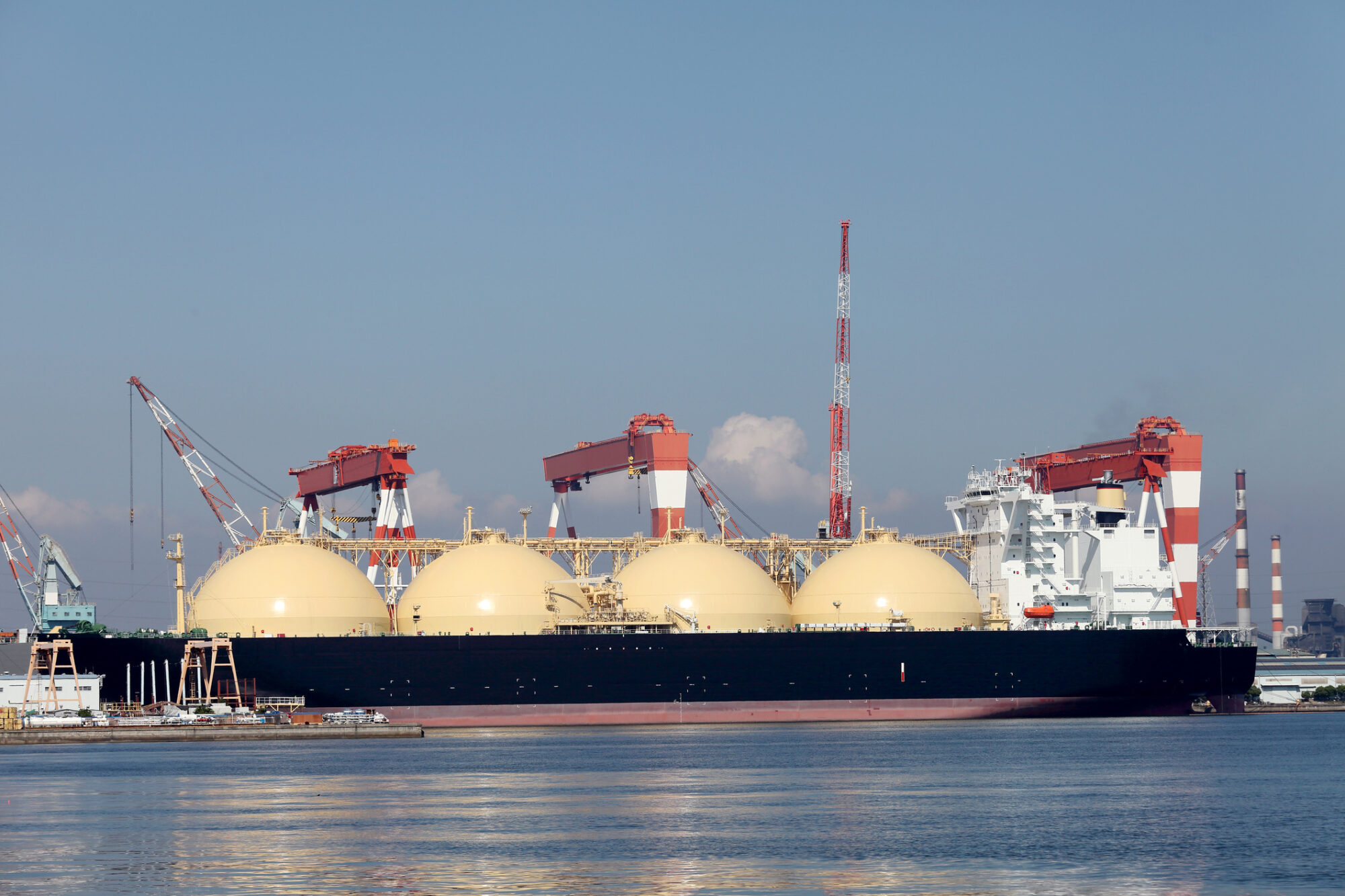
Americans overwhelmingly support exporting U.S. natural gas, a new NAM poll reveals.
What’s going on: In addition to wanting continued exports of LNG, respondents believe the U.S. must boost its production of oil and natural gas, build more energy infrastructure and reform the broken permitting system, according to the findings of an NAM survey of 1,000 registered voters conducted March 15–18.
- In January, the Biden administration announced a moratorium on LNG export permits.
- Europe is the primary destination of exported U.S. LNG.
The details: Among the survey’s key findings:
- Some 87% believe the U.S. should continue exporting natural gas.
- About 86% say the permitting system must be changed so energy projects are approved and online in less time.
- Approximately 76% say the U.S. needs more energy infrastructure, such as port terminals.
- About 74% say the U.S. needs to increase domestic oil and natural gas production.
- And 72% would like to see the U.S. use an all-of-the-above energy approach that includes both traditional and renewable energy sources.
The last word: “The American public agrees: LNG exports are critical to U.S. energy security, creating well-paying jobs and supporting our allies in Europe and Asia,” said NAM President and CEO Jay Timmons.
- “This poll underscores the need for President Biden to immediately direct the Department of Energy to roll back this misguided and counterproductive policy.”
Top DOE Official to NAM: You’re Critical to America’s Energy Future

The Biden administration sees private-sector partners as essential to the future of American energy policy and production, Deputy Secretary of Energy David Turk told NAM board members in Phoenix, Arizona, recently.
What’s going on: “I don’t think we can do anything in the federal government that impacts the real world without enabling, listening to, supporting and trying to be very thoughtful” with private-sector partners, Turk said, calling manufacturers a key force in helping the United States “accelerate our energy independence.”
- In a discussion about energy policy in the clean energy transition—with a focus on nuclear energy, hydrogen and the role of the federal government—Turk took questions and comments from leading figures in the private-sector energy economy on issues ranging from the Biden administration’s freeze on liquefied natural gas export permits, to the need for a robust hydrogen economy, to the implementation of long-awaited transmission infrastructure to ensure energy reliability and affordability.
- The talk also touched on the potential impact of increased natural gas exports on domestic prices and consumers. NAM board members argued that higher exports would not make gas more expensive for U.S. consumers and LNG exports are vital to ensure energy security for our allies.
The conversation: In a roundtable lunch, NAM board members told Turk that the push and pull of the Biden administration’s policies on energy—calling on U.S. producers to increase energy output to reduce consumer prices while calling for an overall reduction in fossil fuel production—makes their goal of increasing American energy reliability and independence more difficult to realize, while creating market gaps that can be filled by cheap energy from Russia and other geopolitical rivals.
“Why did this happen? Why did it come out? How does that achieve any of our shared objectives on the national security stage in terms of climate change?” NAM President and CEO Jay Timmons asked Turk, noting that the Biden administration’s decision to stop approving new export licenses for U.S. LNG undercuts its own stated carbon agenda in the long run.
Turk told NAM board members that U.S. consumers pay roughly one-fifth as much for LNG as those in Asia and Europe, which he called “huge” for economic competitiveness, but still acknowledged that the differential doesn’t accommodate the needs of all manufacturers involved in the energy economy.
“There’s a competitive advantage if our manufacturers are paying less for a key input than others,” Turk said. “There’s a benefit and a difference between the price right now that we pay in the U.S. versus others internationally.”
Meeting matters: The U.S. is the world’s top exporter of LNG, an affordable, plentiful energy source that’s in growing demand and is much cleaner than traditional forms of coal-powered energy—especially in Europe, where LNG has been critical in keeping allied countries from seeking Russian energy sources. For NAM board members to be able to confront Biden administration officials on energy policy directly is a huge win for LNG producers and for manufacturers overall.
“We have more dialogue, more discussion, more interaction with members of the Biden administration than any administration that I’ve been involved in with the NAM,” Timmons said. “Where we have differing opinions, we do get feedback”—and, in the case of the meeting in Phoenix, we provide it.
Manufacturing Front and Center in State of the Union Address
But Biden Misses Marks with Attack on Sector
Washington, D.C. – Following President Biden’s State of the Union address, National Association of Manufacturers President and CEO Jay Timmons released the following statement:
“Tonight, President Biden celebrated manufacturing’s accomplishments during his presidency, and rightly so. He signed into law some of the most consequential pro-manufacturing legislation in recent years—the Bipartisan Infrastructure Law, the CHIPS and Science Act and even key provisions of the Inflation Reduction Act. What’s more, manufacturers have stood proudly with him in his efforts to champion democracy abroad, most notably in Ukraine, and to reach solutions to address our broken immigration system. These are urgent priorities on which Congress should heed his call and act swiftly.
“But President Biden missed the mark tonight in several key areas when he laid out his plans going forward. If the cost of manufacturing in America is driven up by his agencies’ continued regulatory onslaught and a successful push to raise taxes, investment will be driven overseas and Americans will be driven out of work. If his campaign to ‘march-in’ to manufacturers and seize their intellectual property advances, it will rob Americans and the world of future cures and chill research into new breakthroughs across the manufacturing industry. And if President Biden continues to heap blame on pharmaceutical manufacturers, rather than reining in pharmacy benefit managers with cost-saving reforms, Americans and their employers will continue to endure rising health care costs.
“President Biden and Congress have a choice to make: they can take bipartisan action on the priorities manufacturers have outlined in our ‘Competing to Win’ agenda, an agenda that will unquestionably lift the quality of life for all Americans, or they can retreat to partisan corners and put our future in jeopardy.
“The president spoke passionately tonight about protecting democracy and our way of life at home and around the world. Manufacturers share a profound commitment to democracy and to the values that have made America exceptional and keep manufacturing strong—free enterprise, competitiveness, individual liberty and equal opportunity. And one of the surest ways to restore faith in democracy is for both parties to work together and prove that this experiment still works—by delivering smart policies for the American people and by bolstering the industry that is the backbone of our economy and improves lives for all.”
-NAM-
The National Association of Manufacturers is the largest manufacturing association in the United States, representing small and large manufacturers in every industrial sector and in all 50 states. Manufacturing employs nearly 13 million men and women, contributes $2.85 trillion to the U.S. economy annually and accounts for 53% of private-sector research and development. The NAM is the powerful voice of the manufacturing community and the leading advocate for a policy agenda that helps manufacturers compete in the global economy and create jobs across the United States. For more information about the NAM or to follow us on Twitter and Facebook, please visit www.nam.org.
SEC Finalizes Scaled-Back Climate Rule
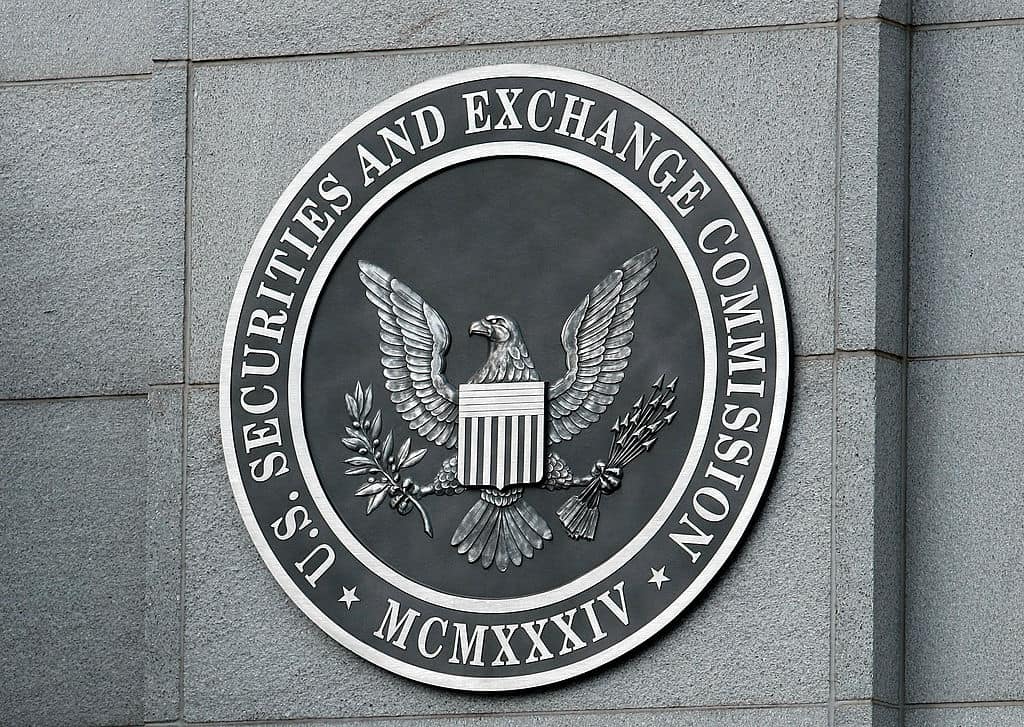
The Securities and Exchange Commission has approved new climate disclosure requirements that have been in the works for the past two years. Changes made to the rule represent progress for manufacturers—though the industry will still face new cost burdens, the NAM said Wednesday night.
What’s going on: The SEC voted Wednesday in favor of requiring public companies to disclose greenhouse gas emissions and other climate-related information. Thanks in part to ongoing NAM advocacy—which Law360 (subscription) covered this week—the agency dropped its onerous, unworkable Scope 3 emissions mandate.
- That provision would have forced public companies to divulge information about emissions coming from anywhere in their supply chains—including from small and family-owned businesses.
Heeding the NAM: “The NAM demonstrated for the SEC the practical realities of such a sweeping proposed rule, encouraging the SEC to make significant changes to remove inflexible and infeasible mandates, require disclosure only of material information and protect small manufacturers from the impact of these requirements,” NAM President and CEO Jay Timmons said following the vote.
Key changes: In addition to the Scope 3 change, the SEC exempted smaller public companies from Scope 1 and Scope 2 emissions reporting and delayed the rule’s effective dates. The final rule also is more narrowly focused on so-called “material” information (data investors need to make informed decisions) than what had been proposed previously.
Keeping a close watch: The final rule “remains imperfect,” Timmons continued. “[A]nd it remains to be seen whether the rule in its entirety is workable for manufacturers.”
- “The NAM remains committed to ensuring the SEC acts within its statutory authority, prioritizes flexibility and provides much-needed guidance—just as we are committed to providing leadership in addressing environmental challenges. This is why the NAM is keeping all options on the table as we evaluate the rule’s potential impacts on the manufacturing sector.”
NAM, Allies File Suit Against EPA Over Air Standard
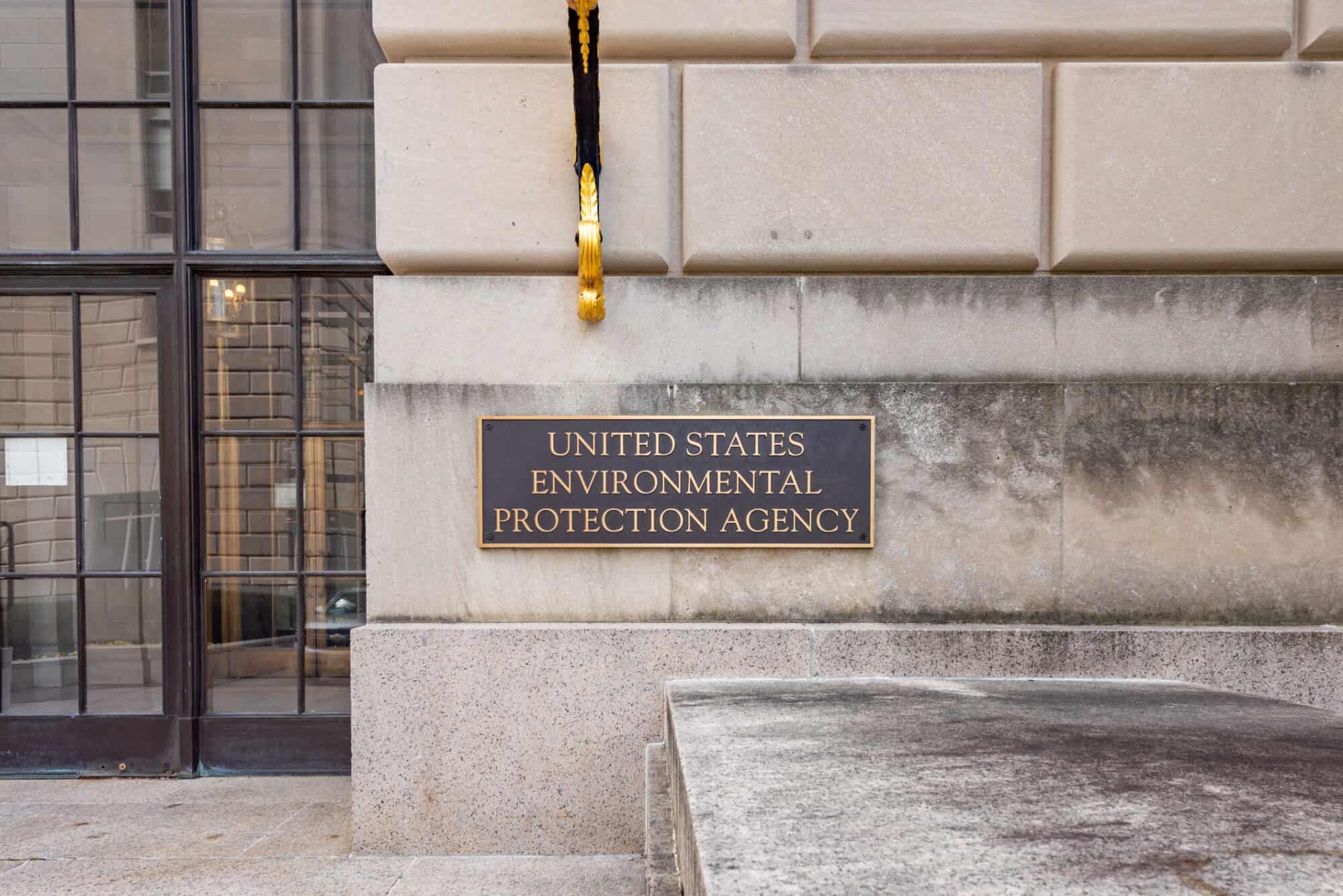
The NAM and seven association partners have filed suit against the Environmental Protection Agency to challenge the office’s overly stringent, recently finalized rule on particulate matter, or PM2.5, the NAM said Wednesday.
What’s going on: The eight groups filed suit in the D.C. Circuit to push back on the EPA’s National Ambient Air Quality Standards rule, which last month it lowered from 12 micrograms per cubic meter of air to 9, a 25% reduction and a stifling burden on manufacturers, the NAM said.
- “In pursuing this discretionary reconsideration rule, the EPA should have considered the tremendous costs and burdens of a lower PM2.5 standard,” said NAM Chief Legal Officer Linda Kelly. “Instead, by plowing ahead with a new standard, the agency not only departs significantly from the traditional NAAQS process, but also gravely undermines the Biden administration’s manufacturing agenda—stifling manufacturing investment, infrastructure development and job creation in communities across the country.”
- Participating in the suit with the NAM—which has repeatedly urged the EPA against overtightening the standard—are the American Chemistry Council, the American Forest & Paper Association, the American Petroleum Institute, the American Wood Council, the U.S. Chamber of Commerce, the National Mining Association and the Portland Cement Association.
Why it’s important: If it’s enacted, the stricter PM2.5 standard would cost businesses and the U.S. economy huge sums, hampering company operations and job growth and forcing tough choices on states and towns nationwide.
- The total cost of complying with the new acceptable concentration level could be as much as $1.8 billion, according to the EPA’s own estimates—and that number could go up.
- What’s more, it would make the U.S. less competitive globally. “Europe’s current PM standard is 25; China’s is 35,” NAM Managing Vice President of Policy Chris Netram told the House Energy and Commerce Subcommittee on Environment, Manufacturing and Critical Materials last month. “If we want the next manufacturing dollar to be spent in America rather than abroad, a standard of 9 is simply not feasible.”
NAM in the news: The New York Times (subscription) covered the lawsuit.
